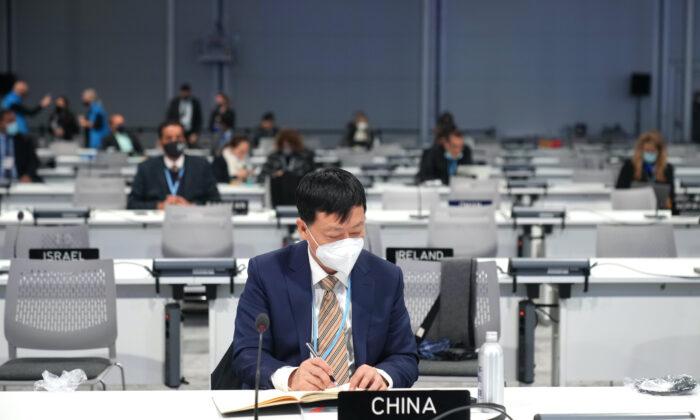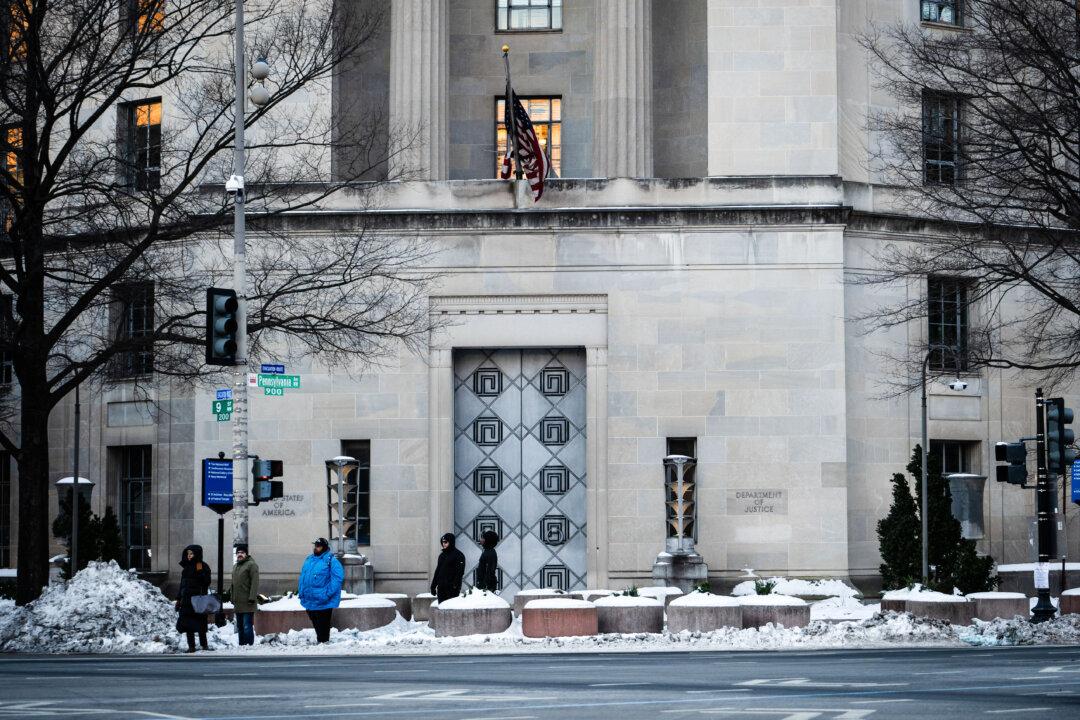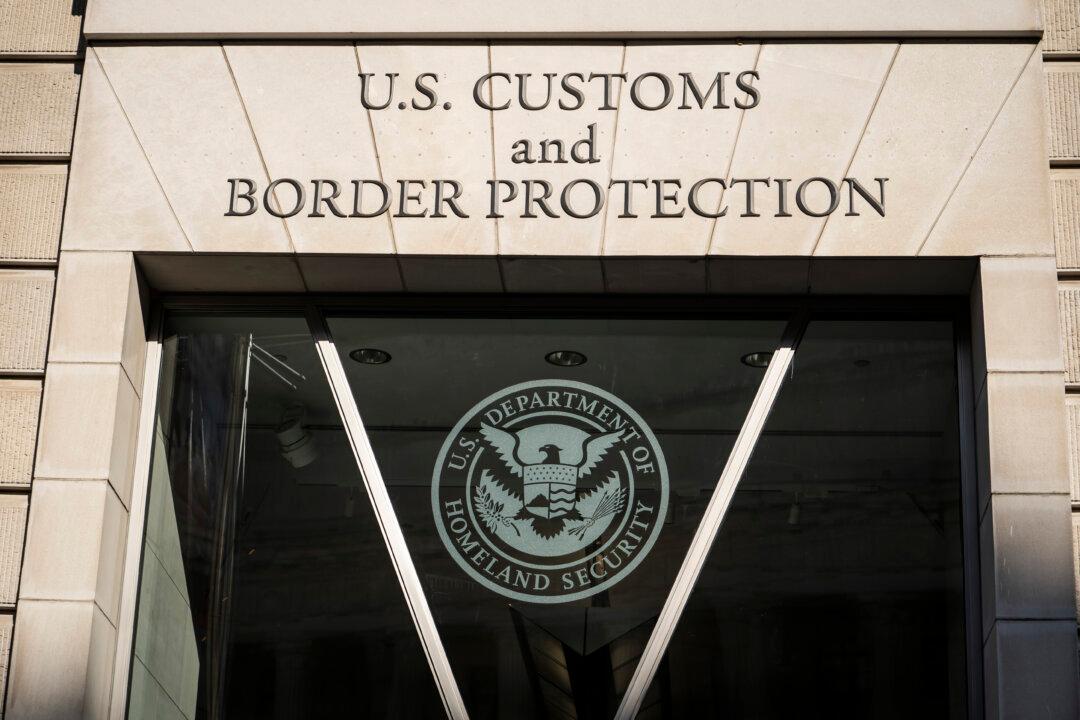Beijing wants Washington to soften its China policies before working with the United States on climate change, as the U.N. Climate Change Conference (COP26) continues in Glasgow.
“You can’t ask China to cut coal production on the one hand, while at the same time imposing sanctions on Chinese photovoltaic enterprises,” said Wang Wenbin, spokesperson for China’s foreign ministry, during a daily briefing on Nov. 2.
In June, the Biden administration made several moves to confront Beijing regarding forced labor allegations in China’s far-western Xinjiang region, where more than 1 million Uyghurs are being detained in internment camps. The U.S. government has characterized the communist regime’s treatment of Uyghurs as genocide.
Photovoltaic panels, a type of solar panel, are made from polysilicon, which is produced by purifying metallurgical grade silica.
Wenbin isn’t the first Chinese Communist Party (CCP) official to say there are strings attached if Washington wants Beijing’s cooperation on combating climate change.
China’s state-run media outlets have also preached the same narrative. On Nov. 1, China’s hawkish state-run Global Times, in an editorial on the climate conference, accused U.S. policy toward China of being “wicked and arrogant,” which it said made it “impossible for China to see any potential to have fair negotiation amid the tensions.”
China is the world’s largest producer and consumer of coal, which is a major source of carbon dioxide emissions. In September 2020, Chinese leader Xi Jinping made an environmental pledge, declaring that China’s carbon emissions would peak before 2030 and that the nation would reach carbon neutrality by 2060.
“How do you do that and claim to have any leadership mantle?” Biden said.
At the same time, Chinese officials haven’t been holding back on criticizing the United States on its climate action.
“China–U.S. joint efforts resulted in the Paris Agreement. ... You can’t just give up, but the U.S. gave up,” Chinese climate negotiator Xie Zhenhua told reporters at Glasgow. “Five years were wasted, but now we need to work harder and catch up.”
On Nov. 3, Zhang Jun, China’s ambassador to the U.N., took to Twitter to criticize the United States for “blame shifting” and having “backpedaled its climate policies many times.”
“But even if the regime in Beijing promises the world, it will be next to meaningless without immediate and verifiable achievements in meeting short-term milestones,” Corr wrote, pointing to how Beijing broke its promise to safeguard Hong Kong’s autonomy under the 1984 Sino–British Joint Declaration.
“So until China democratizes or definitively limits its emissions, the world’s more responsible nations should impose economic sanctions on China in the form of coordinated climate tariffs.”
In response to a query from The Epoch Times, a U.S. State Department spokesperson said that Washington is committed to its climate goals and will cooperate with all countries to address the climate crisis.
“We will continue to stand up for human rights and will not be complicit in China’s abusive and unfair trade and labor practices by importing into the United States products that are tainted by forced labor,” the spokesperson said.





